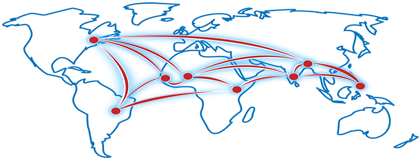A not so good social scientist
mercredi 12 décembre 2012The Art of social analysis :
One begins by pondering statistics for a sound quantitative understanding of a social phenomenon.
Malawi, for example : The currency is now at 320mk for $1.00 US. The cost of a Coca-Cola has risen to 150mk with deposit. 49% of the population is under 15 years of age. Around 17% of those surveyed are knowingly living with HIV/Aids. The average Malawian has a grade 4 education. The GDP is under 400$ per year….
The Art of social research :
One quietly moves into the fields and begins to take notes in hopes of observing the context of social phenomena.
Attend local meetings and observe the surroundings. Listen to the conversation and quietly take notes on what is said. Remain in the back drop so not to interfere with the actual situation. Once you establish trust, make an approach to ask a few questions and conduct a few intimate interviews.
And at the end of each day, head back to the dorm. Take a hot shower, cook some pasta and chicken and say good night to the Guard. After organizing the weekend plans at the Sunbird resort, pull out the Macintosh and get to work deriving a perspective of the African world that you spent the day observing.
I can’t do this anymore !! I am just not a good social scientist. Take, for example, the meeting that was held today.
We attended a meeting this afternoon with all the local NGO’s (well, all were invited but around 12 were participating). In comes this researcher from Lilongwe who explains that he is orchestrating round table consultations in four of Malawi’s districts. His ambition is to deliberate about political apathy and challenge the government for its policies toward Malawian children and thus, the future of Malawi.
I look around me and everyone else seems hesitant to listen and believe him. They stare at the table. The deliberation begins in Mangochi’s civil society. Why does this man think that things will change ? How can they trust that this will work ? What if this is another failure ?
They agree that they should come together and demand that the government provide verification tools for funding. The agree that they should join forces to challenge the government. They understand the situation and what he is saying but lack his confidence. Because they always say this and so far it has never worked. Civil apathy is also apparent within them too. My coordinator address the other members. He makes a powerful and moving speech. He is an excellent public speaker.They bicker between themselves again as to why and what they should do.
The discussion concludes that a solution would depend on strong leadership. They seem not to agree nor disagree. There is a lingering hesitation. No one is sure what to say.
At this moment I live the complexity I described above. I could no longer be that social scientist silently observing, listening and taking notes. Here they were searching for ways to counteract political and civil apathy. Here they were, searching for ways to organize themselves and make things happen. I put down my pen and raised my hand. I am here to participate too. I am here to converse with these people and to share my knowledge and experiences. I am a part of this moment too.
Civil apathy - where does it come from ? From never participating in the decision-making process. From not being a part of the solution. To leave everything to those who are chosen to do it and accept no responsibility to change the status quo. To leave resolution to leaders and presidents or associations and organizations and governments.
So I tell them about direct democracy. I tell them how some groups have taken to voting directly on issues rather than voting for a leader to make decisions for them. It gives them all a chance to participate in the deliberation process and to come up with a to produce a durable solution. Their heads are slowly shaking in agreement. Some look very energetic at the idea.
In the end many have welcomed what I had to say and stopped me from leaving the room. But I am not sure how comfortable I feel. What if I am doing something wrong that leads to some unintended consequence ? It is safer to remain a researcher. But then again, I am not here to do research. So I guess that is the risk taken when knowledge is placed on the table.

